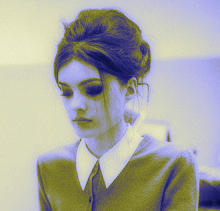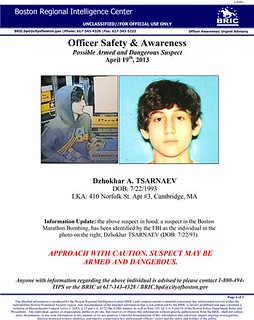The first candidate of the day, an advertising executive, said he was already convinced Tsarnaev "must be guilty".
"I live with several other males my age, a very testosterone-driven household, they think it's very cool that I would get to sentence him to death," said the man to the court.
Another potential juror, a professor of Catholic theology, vehemently opposed to the concept of capital punishment, disqualified himself from service, stating:
"I could not impose the death penalty under any circumstances... should the walls [of the U.S prison system] come down, and we needed to protect innocent lives, only then one could enforce the death penalty", adding any vote for execution would probably prevent him from securing tenure in future.
To serve on the jury candidates must be willing to impose a death sentence on Tsarnaev if they find him guilty.
Massachusetts abolished its death penalty in 1984, but last year, Eric Holder announced the Department of Justice would seek to execute Tsarnaev - against the wishes of the majority of Boston residents.
Despite this, the U.S district court in Boston heard from a number of people whose opposition to the death penalty was absolute, others who were sure of Tsarnaev's guilt, "just not the extent of it", a man who's wife cared for the injured after the April 15, 2013 bombing, and several individuals who's relatives were employed as police officers in the city of Boston and surrounding areas.
Walter Prince, a former prosecutor not involved with the case, said, "The questionnaire was designed to filter out some folks, real extreme views on both sides, now you're finding out even more that the questionnaire didn't catch."
Nonetheless, the filtering process is not without its pitfalls and doesn't address the problem of potential jurors withholding information or being untruthful simply because they want to serve - yet know their circumstances or views would likely make them ineligible.
Defense attorney David Bruck became exasperated during the selection process, at one point urging O'Toole to be more specific when questioning candidates about their views on guilt and if they could genuinely vote for life in prison, in the event they found Tsarnaev guilty of grave terrorism charges.
"It doesn't matter whether the juror might vote for life in an unintentional killing because that's not what we're dealing with, we really don't think we're going to have a fair jury unless they're asked," said Bruck.
He went on to argue there was a "pervasive sense" of Tsarnaev's guilt in the courtroom, adding, "This trial is not over already".
Judge O'Toole denied the defense request. "The jurors know that this is about a bombing, they have those specifics already in their minds", said O'Toole.
Several reporters housed in an over-flow courtroom expressed concern when a live feed to the proceedings became temporarily disabled, prompting one to comment, "staff say they can't fix this feed... this public proceeding isn't public...".
Andy Thibault, a Boston columnist, said, "the 'public' proceedings have been marred by video and audio blackouts", adding O'Toole had barred all press from entering the courtroom.
Tsarnaev, who appeared interested and actively engaged with the selection process, is also charged with shooting Sean Collier, an MIT police officer killed three days after the bombings. He has pleaded not guilty to a total of 30 charges, 17 of which carry a possible death sentence.
Jury selection is set to continue Friday. The judge said he expects testimony to begin on January 26.






